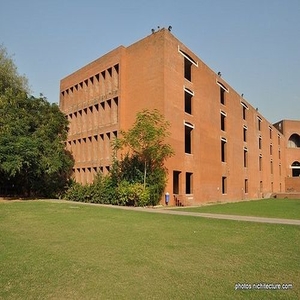IIM-Ahmedabad Announces new 2 year Post Graduate Programme batches, Rise in Number of Women Candidates
 The Indian Institute of Management (IIM), Ahmedabad virtually announced the openings of the 58th class of the two-year Post Graduate Programme in Management (PGP) and the 22nd class of the Post Graduate Programme in Food and Agribusiness Management (PGP-FABM).
The Indian Institute of Management (IIM), Ahmedabad virtually announced the openings of the 58th class of the two-year Post Graduate Programme in Management (PGP) and the 22nd class of the Post Graduate Programme in Food and Agribusiness Management (PGP-FABM).
Women comprise 28 percent of the total class size in the new PGP batch and 43 percent of the total number of students in the new PGP-FABM batch – the numbers being 6 percent higher than 22 percent registered in the PGP class in 2020.
This year, the institute has registered a total intake of 432 students of which 385 students have joined the PGP programme and 47 students joined the PGP-FABM programme. The PGP class comprises 72 percent of men and 28 percent of women. The average age of the PGP class is around 23 years and 67 percent of the total students have been professionals with prior work experience.
In the current PGP-FABM batch, about 57 percent are men and 43 percent are women. About 96 percent of the class comprises students in the age group of 21 to 25 years. Of the 47 students, 14 come with prior work experience. The present classes comprise students from arts, science, commerce, engineering, agriculture, and allied sciences, among others.
There has been an increase in the number of women joining both the PGP and PGP-FABM programmes. Women comprise 28 percent of the total class size in the new PGP batch and 43 percent of the total number of students in the new PGP-FABM batch – the numbers being 6 percent higher than 22 per cent registered in the PGP class in 2020 and 9 percent higher than the 34 percent registered in the PGP-FABM programme in 2020, respectively.
The two-year PGP programme (2021-23) has 72 percent of candidates from an engineering background. This year, the PGP-FABM programme has witnessed an increase in the number of students from agriculture and allied backgrounds as compared to the previous two years.
Due to the prevailing situation, the institute has taken the decision to start term-I courses in online mode. It is likely to make further changes in the teaching mode based on the situation and government guidelines announced from time to time.

